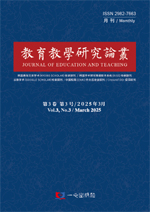- 영문명
- Institutional Empowerment, Collaborative Symbiosis, and Ecological Reconstruction: A Study on the Industry-Education Integration Mechanism of South Korea’s Specialized Colleges-With Insights for the High-quality Development of Higher Vocational Education in China
- 발행기관
- YIXIN 출판사
- 저자명
- Huang Qingqin Liu Yun
- 간행물 정보
- 『Journal of Education and Teaching』Vol.3 No.3, 16~25쪽, 전체 10쪽
- 주제분류
- 사회과학 > 교육학
- 파일형태
- 발행일자
- 2025.03.31
4,000원
구매일시로부터 72시간 이내에 다운로드 가능합니다.
이 학술논문 정보는 (주)교보문고와 각 발행기관 사이에 저작물 이용 계약이 체결된 것으로, 교보문고를 통해 제공되고 있습니다.

국문 초록
Through an integrated model characterized by institutional innovation, enterprise collaboration, and international cooperation, South Korea’s specialized colleges have established a vocational education system deeply integrating educational, industrial, and innovation chains, significantly underpinning the country’s “Miracle on the Han River”. This study systematically reviews the historical development and policy frameworks of South Korea’s specialized colleges, revealing their pathways to deep industry-education integration via legislative safeguards, school-enterprise cooperative training, lifelong education system establishment, and international resource integration. Considering the structural issues faced by Chinese higher vocational education—such as ineffective industry-education collaboration, talent supply-demand mismatches, and disconnection from international standards-this paper suggests learning from South Korean experiences in three dimensions: system reconstruction, mechanism innovation, and ecological openness. The research emphasizes that, by employing institutional guarantees to stimulate dynamic school-enterprise collaboration and utilizing international partnerships to broaden developmental opportunities, China can establish an industry-education integration ecosystem. Such an ecosystem can cultivate composite talents endowed with both craftsmanship and innovation capabilities, thus advancing China’s strategic goals of becoming a “Skill Power” and an “Education Power”.
영문 초록
韩国专门大学通过“制度创新-企业协同-国际联动”三位一体的产教融合模式,构建了教育链、产业链与创新链深度融合的职业教育体系,成为“汉江奇迹”的重要支撑。本文系统梳理韩国专门大学的发展历程、政策框架,揭示其通过法律保障、校企协同育人、终身教育体系构建、国际化资源整合等举措实现产教深度融合的路径。针对中国高职教育面临的产教协同低效、人才供需错位、国际标准脱节等结构性矛盾,提出从体系重构、机制革新、生态开放三方面借鉴韩国经验。研究强调,通过制度保障激发校企协同活力、国际合作拓展发展空间,中国职业教育可构建产教深度融合生态,为新型工业化培育兼具工匠精神与创新能力的复合型人才,助力“技能强国”与“教育强国”战略目标的实现。
목차
Ⅰ. 引言
Ⅱ. 韩国专门大学的发展与产教融合政策
Ⅲ. 韩国专门大学产教融合的典型模式与举措
Ⅳ. 中国高职院校产教融合面临的困境与挑战
Ⅴ. 韩国专门大学产教融合经验对中国高职教育的启示
Ⅵ. 结语
키워드
해당간행물 수록 논문
참고문헌
관련논문
사회과학 > 교육학분야 BEST
- 학업적 자기효능감 척도 개발 및 타당화 연구
- 제4차 산업혁명시대의 인간상과 교육의 방향 및 제언
- 미국 고교학점제의 특징과 한국 고교학점제 시행을 위한 정책적 시사점: 노스캐롤라이나 주의 운용 사례를 중심으로
사회과학 > 교육학분야 NEW
- 교원교육 제41권 제5호 목차
- 온라인 국제교류 협력학습의 효과에 관한 연구 - 서울특별시교육청을 중심으로
- 학교공간혁신 참여설계 과정에서 교사 퍼실리테이터의 역할과 역량 - FGI 연구
최근 이용한 논문
교보eBook 첫 방문을 환영 합니다!

신규가입 혜택 지급이 완료 되었습니다.
바로 사용 가능한 교보e캐시 1,000원 (유효기간 7일)
지금 바로 교보eBook의 다양한 콘텐츠를 이용해 보세요!



